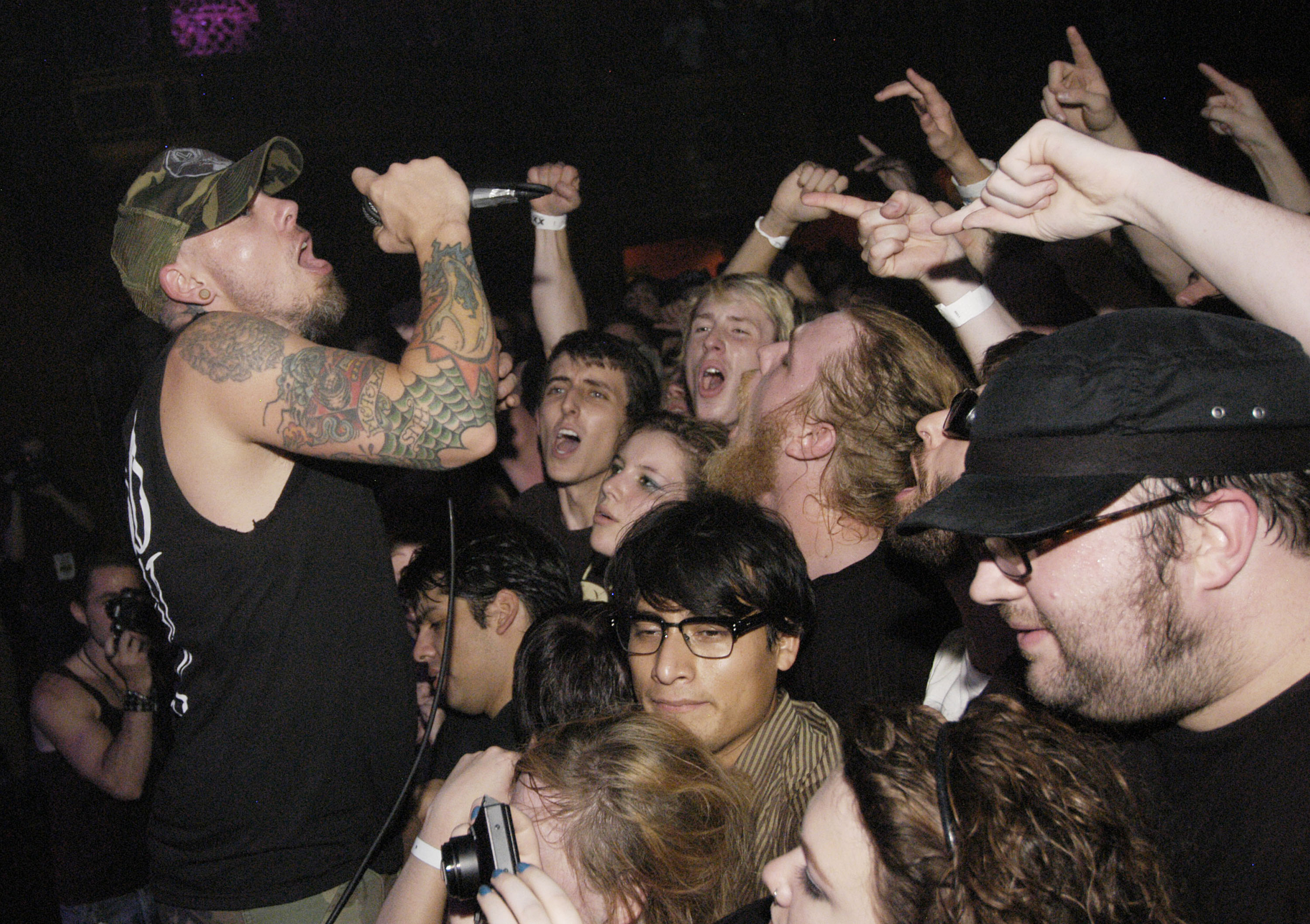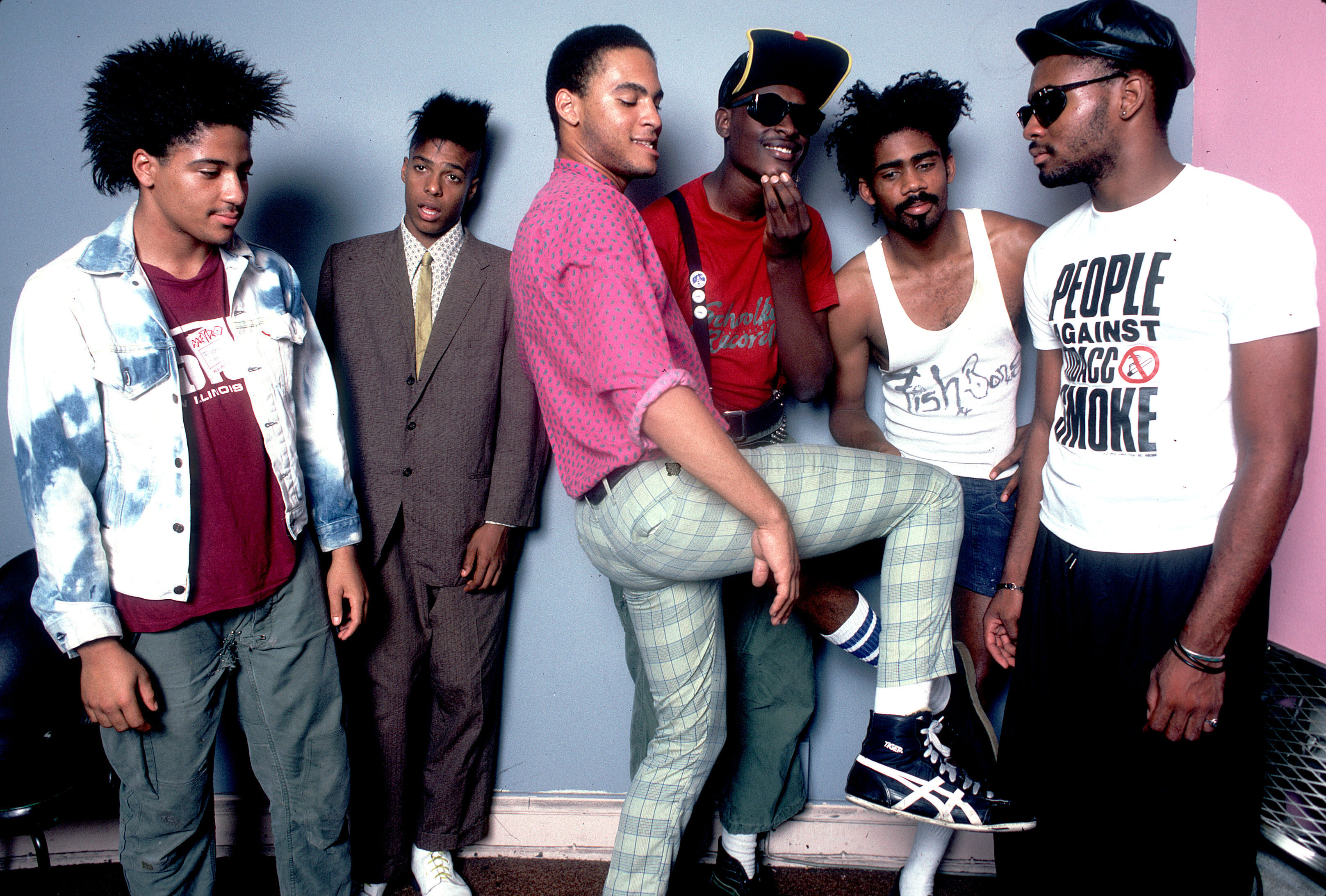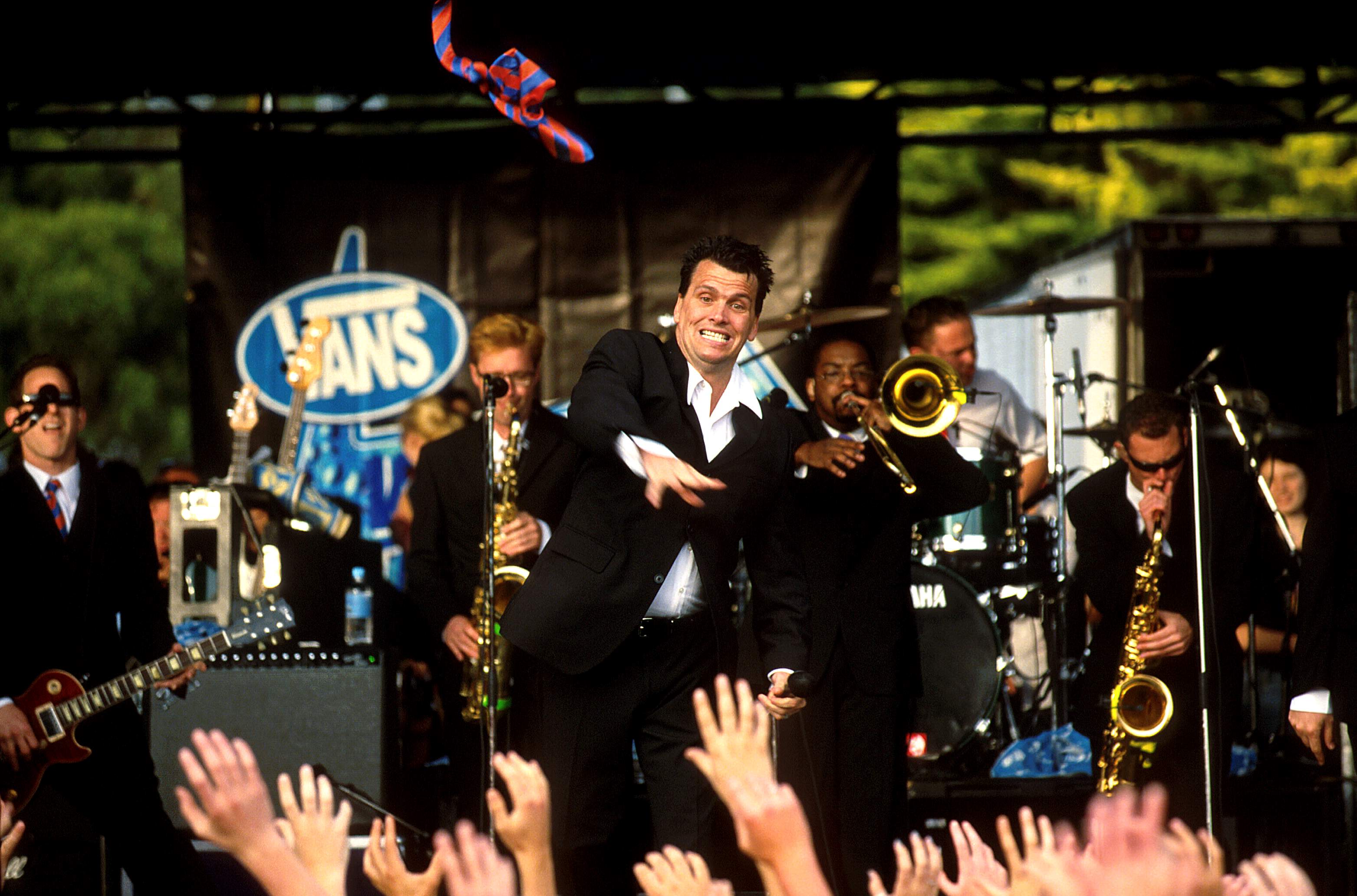Ska never fully healed from getting dissed by Propagandhi.
In 1993, the legendary Canadian punk band released their debut album How to Clean Everything. It included the highly memorable song “Ska Sucks”—in which singer Chris Hannah proclaimed, “Ska revival isn’t cool, you stupid fuck / The bands are only in it for the bucks / And if you don’t believe me, you’re a schmuck / But the trend will die out with any luck.”
Hannah did not get his wish. Instead of dying out in the early 90s, ska actually gained momentum over the course of the decade, culminating in the mainstream success of groups like Rancid, The Mighty Mighty Bosstones, No Doubt, Goldfinger, and Save Ferris. But the bigger ska became, the more people hated it—especially music critics and the self-styled hip crowd. Not only was ska a commercial trend; it committed the cardinal sin of being bouncy, goofy, and unapologetically fun. Alternative music as a whole craved to be taken seriously as the voice of an ironic, angst-ridden generation; ska, on the other hand, would rather toot on horns and hop around like dorks. Alt-rock was acutely self-conscious; ska couldn’t care less what anyone thought. The fact that a number of ska bands in the 90s actually covered Propagandhi’s “Ska Sucks” proved just how much ska loved turning frowns upside down.

But without saying “Not all ska bands!” it should be pointed out that a small chunk of ’90s ska had deeper goals than just sheer fun (not that sheer fun is a bad thing).
“Ska bands in the 90s probably could’ve silenced critics by making their music and presentation more serious, but that would’ve been contrary to the spirit of the whole thing,” says Kenneth Partridge, author of an upcoming book about the era that’s tentatively titled Hell of a Hat: The Rise and Fall of ’90s Ska and Swing. “Two-tone, the model for so much American ska, was all about making you dance and think at the same time. And those bands were operating at a very dark time in England. It makes sense that ska bands in the upbeat American 90s would tip the balance toward fun. Obviously, the goofier you get, the more you run the risk of being dismissed by ‘serious music fans.’ A lot of American bands in the 90s were very comfortable with this risk.”
Skanking the line between ska and punk—and between outraged messages and escapist joy—a battalion of political ska-punk groups thrived. Most were directly inspired by Operation Ivy, the iconic, late-80s band that mixed radical politics, jagged punk riffs, and Jamaican-influenced rhythms, igniting hundreds of similar bands and spawning platinum-selling Rancid in the process. From Florida’s Against All Authority to New York’s Choking Victim to England’s Citizen Fish, ska-punk tapped into the overlap of ska and punk that had existed since the late 70s, when British punk and 2 Tone bands led by The Clash and The Specials spearheaded that potent mix. This stew of explosive energy and political backbone was kept alive in Fishbone as well as Operation Ivy later in the 80s, but it echoed the grit of original Jamaican ska.
“Politics and ska have always been intertwined,” says Heather Augustyn, author of numerous books on ska as well as the writer of the 2019 documentary Pick It Up!: Ska in the ’90s. “Because Jamaica gained its independence from Great Britain in 1962, a number of songs both chronicling the road to independence and expressing optimism over this new freedom and national identity were written around this time. Still others channeled the oppression of the colonizers and issues of slavery and African identity.”

Funny enough, 90s ska-punk owed as much to Propagandhi as it did to the long political tradition of ska. Like Propagandhi, ska-punk mixed leftism and anarchism, all spiked with activist outrage. Since Propagandhi’s start in 1986, they’ve never been afraid to get comedic or personal in their pursuit of conveying a deeper message—staunchly anti-corporate, anti-capitalist, and critical of the social injustice that stains not only society at large, but the scene they belong to. The Suicide Machines don’t fall far from that tree. One of the most beloved ska-punk bands of the era, The Suicide Machines, have been combining those two genres since the early 90s, and they’re returning this month with their first new album in 15 years, Revolution Spring (released, incidentally, on Fat Wreck Chords—the same label behind Propagandhi’s “Ska Sucks.”) For lead singer Jay Navarro, the comeback is personal.
“A good portion of this record is about why and who I am at this moment,” he says. “Poverty has gotten worse [in America], and ultra-rich authoritarian assholes run the country so they can maximize profits for themselves. My new take with this record wasn’t about pointing fingers and saying, “It’s them them them!!!” We wrote these songs about asking oneself honest, hard questions regarding what our role is in this world on an individual level. We wrote these songs about opening your eyes to how fucked we are as humans and citizens of this country. At least in 2020, it seems people are opening their eyes to the fact that our government and the White House is bought and sold.”
But Revolution Spring is surprisingly optimistic. For every pit-ready and/or skank-worthy tirade against injustice such as “Bully in Blue” and “Babylon of Ours,” there’s a more nuanced song that frames Navarro’s activist outlook in achingly personal terms. In “Awkward Always,” he cracks open his heart and confesses, “On the outside looking in / I would have taken on the world back then / On the outside looking in / On the outside I never fit in.” And on the rowdy, catchy singalong “Anarchist Wedding,” he joins the rebellious and the celebratory: “We’re drunk as fuck on organic pear cider / I have never seen two more in love, so tonight / Revolution was on hold, two hearts set to explode.” It’s as much of a drunken call to action as it is an admission that even the most committed warrior needs a night off to party, laugh at themselves, and liberate their own vulnerability.
As Navarro explains, “Music is not social justice. You can’t sing about change and expect anything to happen. Take the song ‘Pressure Drop’ by Toots and the Maytals, a song about the Jamaican government dropping the water pressure so people have nothing to drink, cook, or bath with, to oppress and subdue its citizens. Music can allow you to sneak a song like this on any radio station because it sounds uplifting or poppy, yet it’s a protest song. It can serve to let others across the city, country, or world know what is going on and maybe, just maybe, incite some pushback against the oppressor.”
Suicide Machines have their own political song about water on Revolution Spring. Since the band hails from Detroit, the ongoing water crisis in nearby Flint, Michigan, hits close to home—and Navarro pulls no punches in the song “Flint Hostage Crisis.” Over apocalyptic ska riffs and galloping hardcore choruses, Navarro howls, “Drinking water that makes you fucking sick / Left with no choice but to live like hostages / The rich politicians getting over on the poor / Rich corporations are waging class war.” At the same time, he infuses “Impossible Possibilities” with raging inspiration: “I have big dreams and so should you / Goals and aspirations of together what we can do / Let’s teach the kids not to hate / For the next generation maybe things will change.”
“Hope was the most important dynamic I sought to convey with Revolution Spring. I was trying to inject some PMA into a world that is getting more insane by the day,” Navarro says, citing the Positive Mental Attitude philosophy spread by the legendary reggae-punk band Bad Brains. “Instead of just being pissed off,” he adds, “I’m trying to uplift.”

Dicky Barrett, lead singer of The Mighty Mighty Bosstones, recognizes the tension between ska-punk’s instinct to be both uplifting and enraged. “In this climate I can’t just say, ‘Hey, let’s all be cheerful and put on our ska shoes,’” he told Diffuser in 2018, as the hateful policies of Donald Trump’s presidency were growing increasingly atrocious. Barrett also pointed out that The Bosstones’ 1997 song “Let’s Face It” has recently become, from his perspective, “a battle cry” and an “anthem of resistance, an anthem against things that are going on right now, racism, sexism.” Released at the height of the 90s ska trend, “Let’s Face It” does indeed pack a punch that’s now crucial in the Trump era: “We sure weren’t put here to hate / Be racist, be sexist, be bigots,” Barrett growls. “Be sure we won’t stand for your hate.”
It’s a message that even Propagandhi—or any of ska’s sarcastic detractors over the decades—would have a hard time denying.
from VICE https://ift.tt/2wdanuF
via cheap web hosting
No comments:
Post a Comment